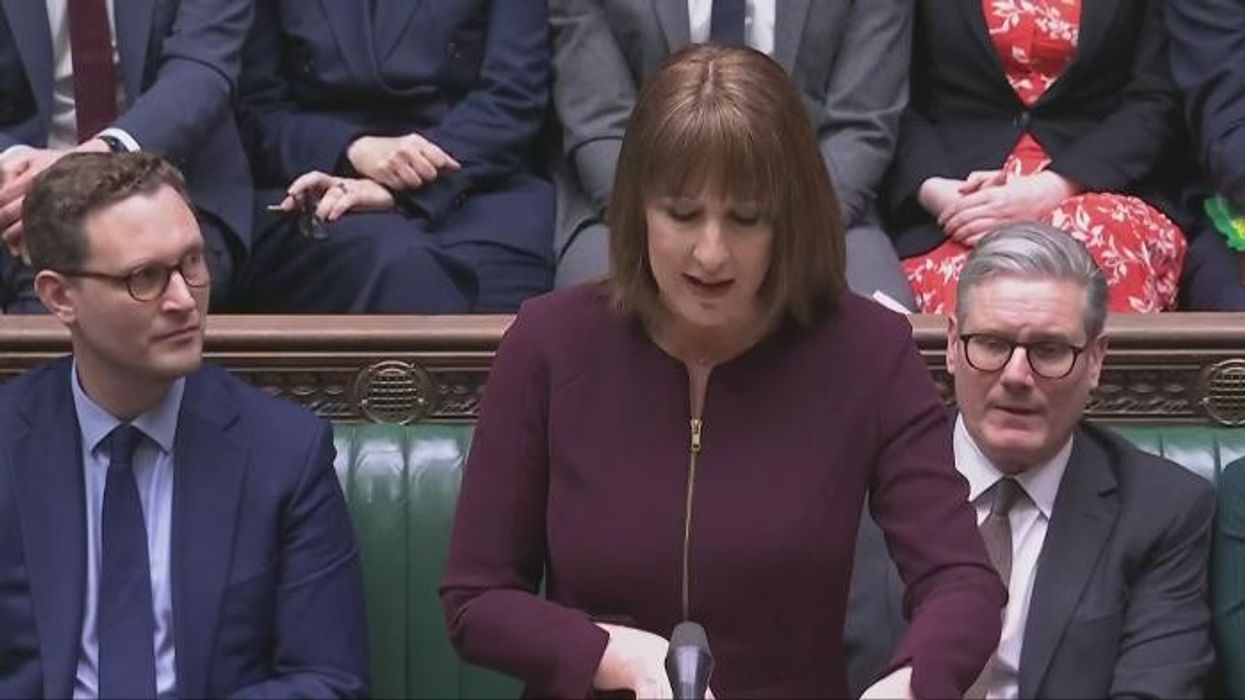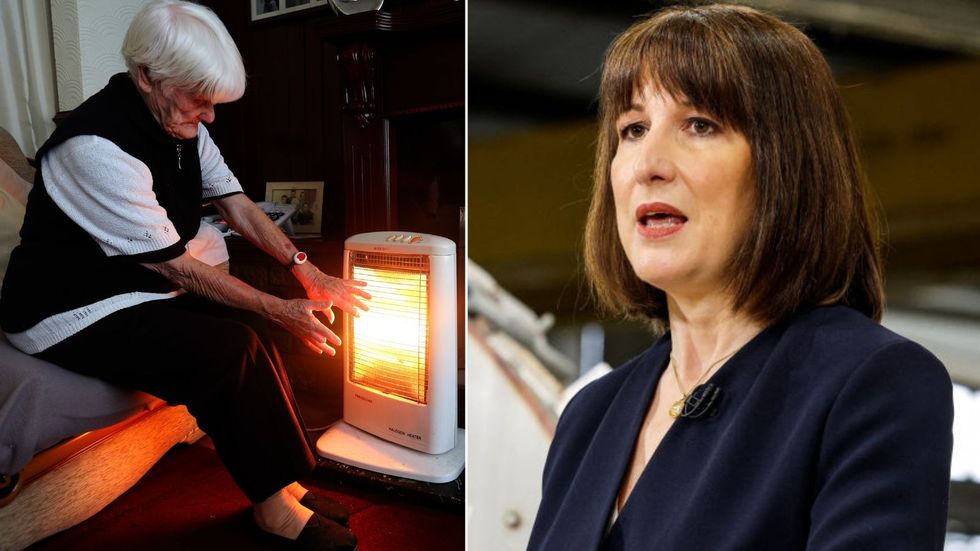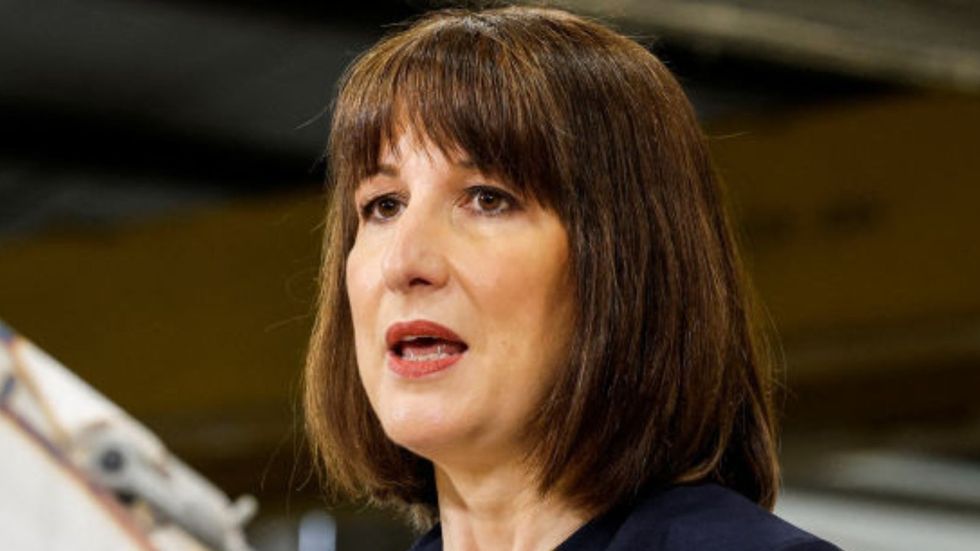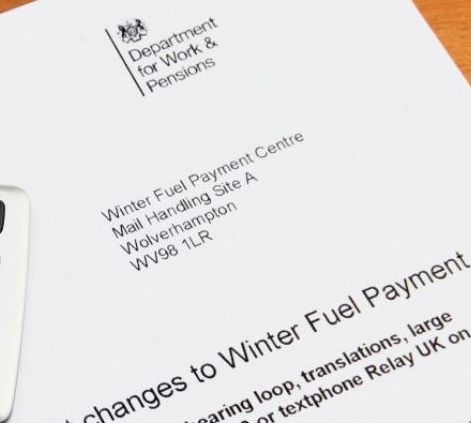Rachel Reeves' Winter Fuel Payments U-turn sparks fresh tax rise warning as £1.25bn hole threatens fiscal rules

Fiscal rules 'non-negotiable', says Reeves |
GBNEWS

The Chancellor's reversal has sparked debate over how Labour will balance books without more borrowing
Don't Miss
Most Read
Rachel Reeves is under pressure to explain how she will fill a £1.25 billion funding gap after scrapping planned cuts to Winter Fuel Payments, sparking renewed fears of looming tax rises. Treasury officials confirmed the policy change will not be funded through borrowing, raising the likelihood that new or increased taxes will be needed to plug the gap.



The Chancellor reversed her controversial decision to cut Winter Fuel Payment support following heavy criticism from Labour MPs and cabinet ministers, with the policy widely blamed for the party's poor performance in last month's local elections.
Under the revised scheme, pensioners earning under £35,000 a year will once again receive up to £300 in Winter Fuel Payments, benefiting around nine million people.
Roughly two million higher earners will no longer be eligible. Instead, the Government will introduce a clawback system, paying all pensioners initially before reclaiming the benefit through tax adjustments for those over the income threshold.
The full details of how the reversal will be paid for won’t be revealed until the Autumn Budget, but ministers have insisted that it will not involve additional borrowing, putting Reeves under growing pressure to find cuts or raise taxes elsewhere to stay within her fiscal rules.
The delay in explaining funding arrangements has prompted accusations of unfunded pledges, something the chancellor has repeatedly promised to avoid.
The Government maintains it is appropriate to defer such announcements until the autumn budget when comprehensive tax and spending decisions are made.

The policy reversal will cost the Treasury £1.25 billion, dramatically reducing the anticipated savings from the original winter fuel payment restrictions.
Treasury estimates initially projected £1.5 billion in savings this year, but experts calculate the actual figure will be just £250 million.
Sir Steve Webb, a partner at pension consultant LCP, noted the Government had overlooked an additional £200 million cost from a surge in pension credit applications.
An estimated 57,000 extra claims followed Labour's July decision to revoke payments from 10 million pensioners.

The Treasury maintains the revised policy will still raise £450 million, though this figure is disputed by financial experts who cite administrative costs and increased benefit claims.
Rachel Vahey of investment firm AJ Bell described the administrative approach as "the most convoluted and difficult", warning that "the net saving from the whole exercise is likely to be miniscule".
She highlighted concerns about creating "tax chaos for over a million people" through the clawback mechanism.
Julian Jessop from the Institute of Economic Affairs questioned whether the revised plan would deliver any meaningful savings, noting the clawback system's complexity.
Webb calculated that the changes "wipe out most of the extra revenue which the Government was expecting to get from the winter fuel payment policy", citing both reduced savings and increased pension credit costs.
Reeves defended her original decision, stating: "Targeting winter fuel payments was a tough decision, but the right decision because of the inheritance we had been left by the previous government."
She emphasised that means-testing remains appropriate to ensure the payment is "targeted and fair, rather than restoring eligibility to everyone including the wealthiest."
The Chancellor added: "But we have now acted to expand the eligibility of the winter fuel payment so no pensioner on a lower income will miss out.

The Treasury maintains the revised policy will still raise £450 million
| GETTY"This will mean over three quarters of pensioners receiving the payment in England and Wales later this winter."
The announcement precedes Wednesday's spending review, which will allocate £113 billion for infrastructure projects including public transport and nuclear energy.
The NHS is set to receive approximately £30 billion in additional annual funding, alongside increased investment for the Ministry of Defence. However, unprotected departments face potential real-terms cuts as the government seeks to balance its books.
Yvette Cooper remains in negotiations with Reeves over police funding, with ongoing disputes about meeting the Government's pledge to recruit 13,000 additional neighbourhood officers.
More From GB News










